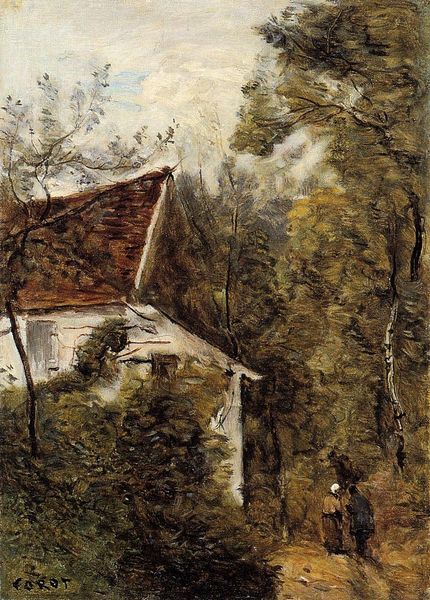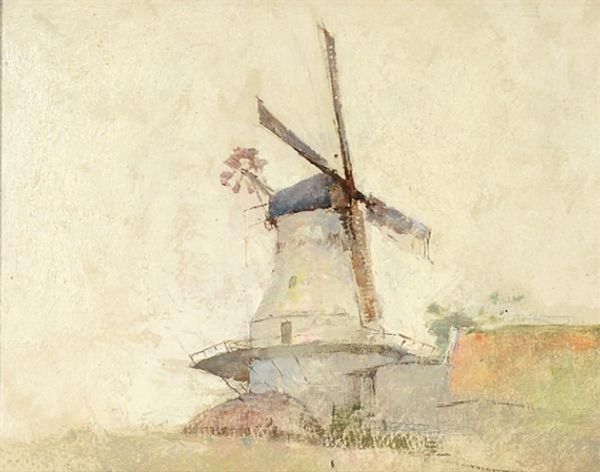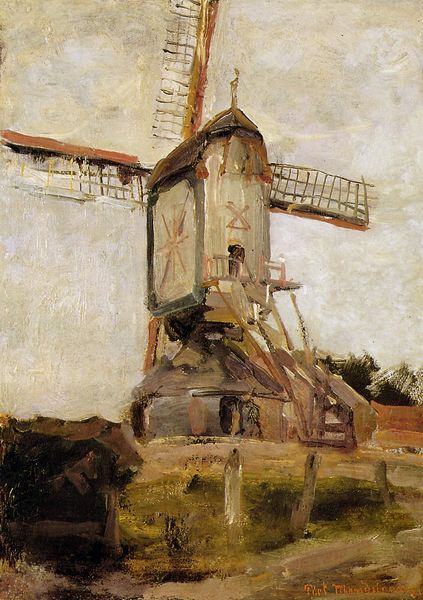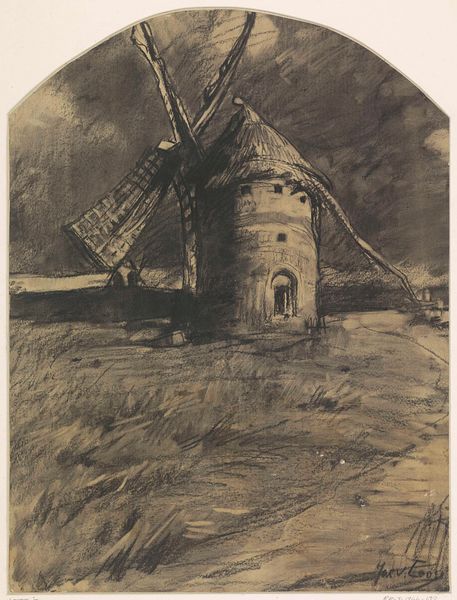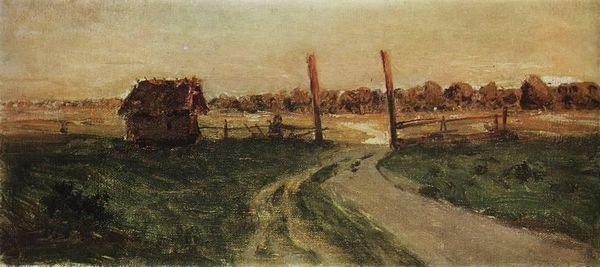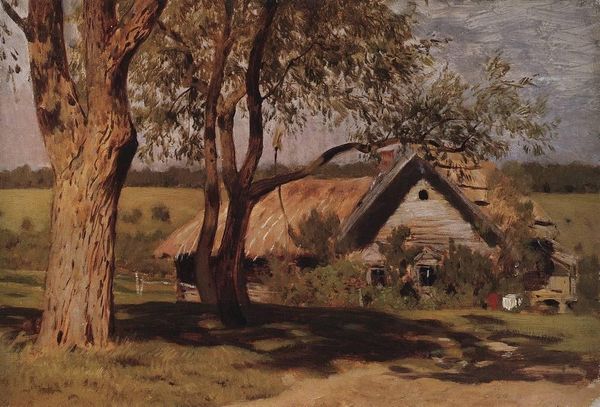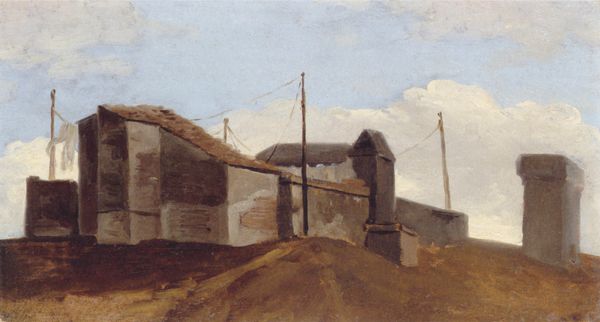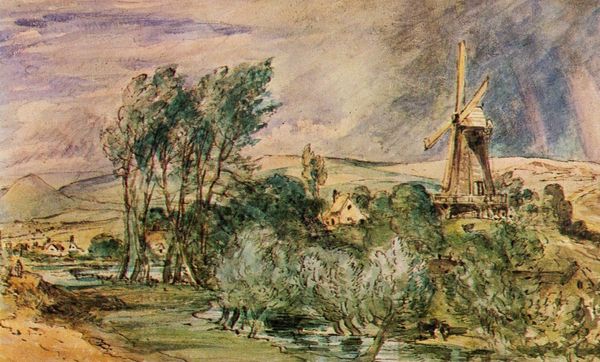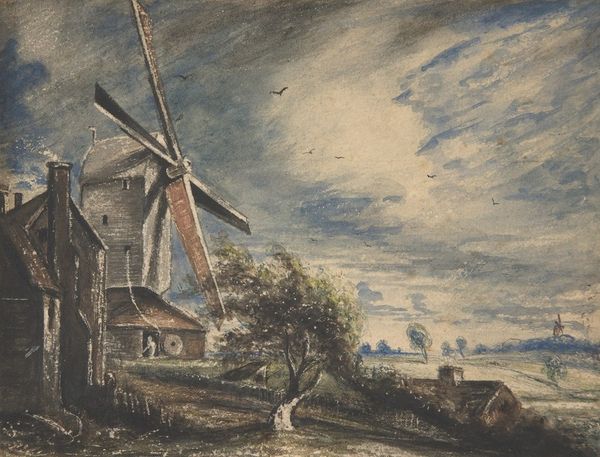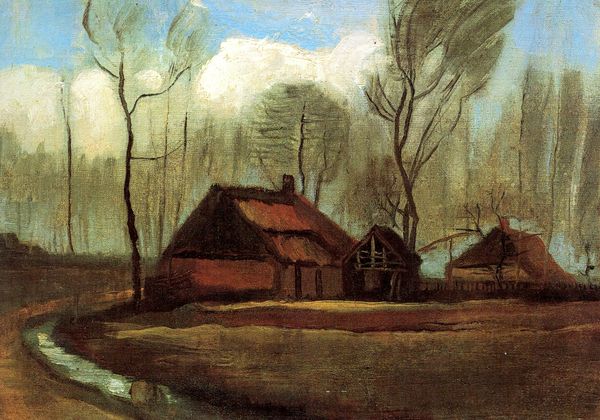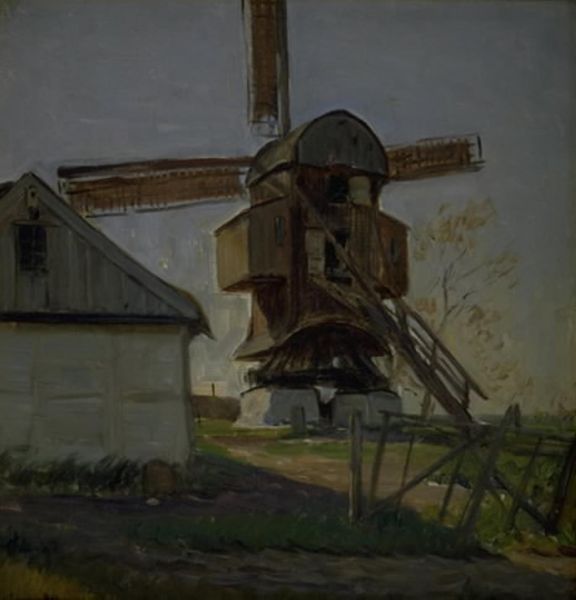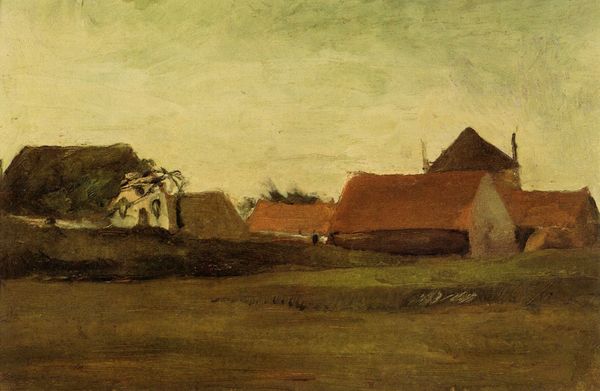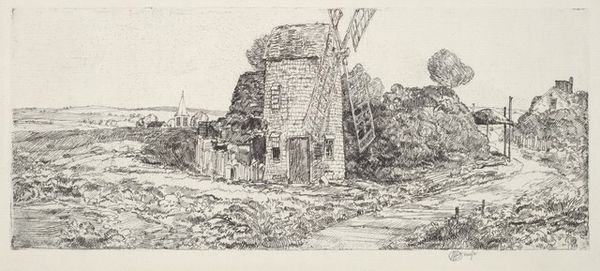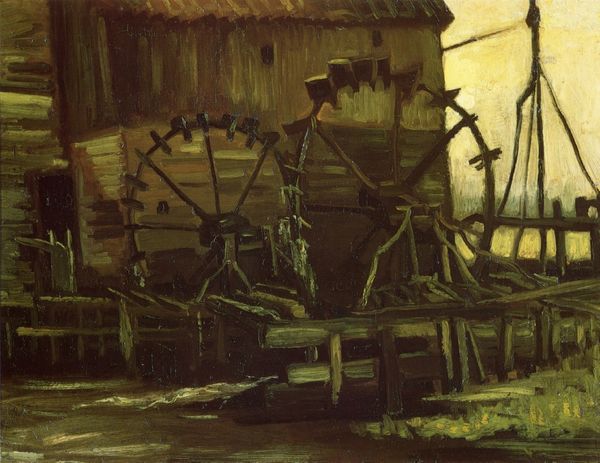
painting, plein-air, oil-paint
#
painting
#
plein-air
#
oil-paint
#
landscape
#
oil painting
#
romanticism
#
cityscape
Copyright: Public domain
Curator: John Constable's "A Windmill near Brighton" immediately strikes me with its dramatic mood. The bold brushstrokes create a sense of churning energy, and the dark palette gives it an almost gothic feel. Editor: It’s interesting you pick up on that drama. This painting, made with oil paint and likely in plein-air style, suggests so much about artistic production in its raw, unfinished form. The visible brushwork isn’t trying to disguise the act of making; it celebrates it. You see the artist wrestling with the elements, capturing the light and shadow on the canvas in real time. Curator: The windmill itself looms as a symbol, doesn't it? Think about it: windmills were essential infrastructure. They represented the harnessing of nature's power, sustenance, and community. Placing it in the landscape elevates it. But with such ominous skies, is it a celebration or a premonition of something lost, the struggle between man and nature? Editor: Absolutely, it becomes this contested space, doesn’t it? Consider the materiality of the windmill itself. Wood, canvas, the turning gear all depended on human labor—craftsmanship—a localized economy responding to the climate and geology of the region. Now juxtapose that handmade, material culture with the emerging industrialized world that Constable, his patrons, and the laborers building his landscapes would have inhabited. Curator: So, the windmill could embody a clash between tradition and modernity? The imposing darkness feels almost apocalyptic—foreshadowing societal shift, as you put it, not just climate. Maybe Constable sensed something profound shifting in the symbolic weight, anxieties rising around the changes from this older world. Editor: Precisely! The lack of finish in this work almost makes the painting itself into a ruin, a testament to both technological prowess and its fragility. That direct engagement with the landscape via paint handling suggests a romantic impulse but also underscores the artist’s active engagement with processes shaping that very landscape. Curator: This piece has revealed a darker vision than I first recognized—thank you. It's far more layered than a simple landscape painting and reflects the artist's view about social and cultural shifts. Editor: A rewarding journey through landscape and labor, memory and production, all thanks to the raw materiality and energy contained within.
Comments
No comments
Be the first to comment and join the conversation on the ultimate creative platform.
